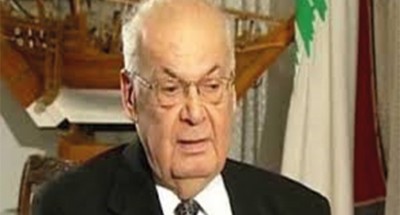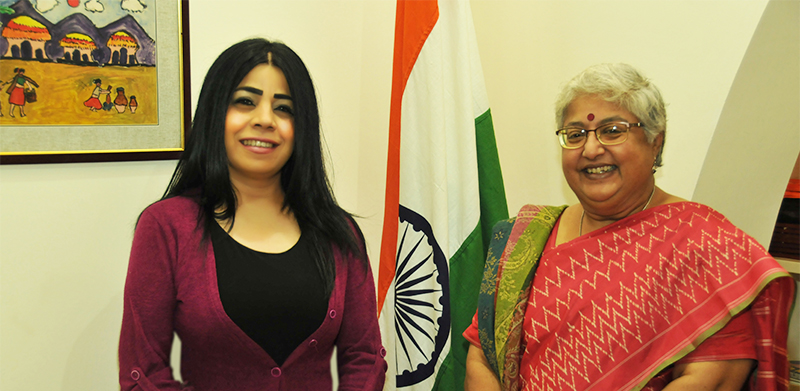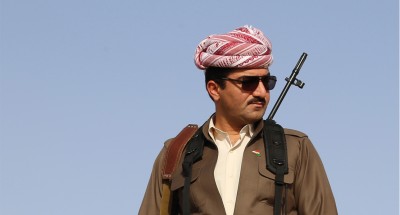The Concious of Lebanon

The Concious of Lebanon
A role model and an innovative politician who has been serving Lebanon for more than forty years, Salim Al Hoss has profound experience in the complex realities of the Lebanese entity. He has an extensive track record when it comes to Lebanese daily issues. Hoss is a transparent man who practices democracy in its truest sense and he remains a symbol of the dream of establishing a modern, fair and democratic Lebanon.
Dr. Salim Ahmad Al-Hoss was born in 1929. He studied economics at the American University in Beirut and earned a PhD in business and economics from Indiana University in the United States. He is a Lebanese politician, academic and an economist. He served as prime minister five times, from December 9, 1976 to the 16th of July 1979, in the era of President Elias Sarkis and from July 16th, 1979 to October 25th, 1980 also during the era of Elias Sarkis.
From June 1st, 1987 he was the acting President of the Government after the assassination of President Rashid Karami, in the era President Amin Gemayel and from November 25, 1989 to December 24, 1990, in the era of President Elias Hrawi.
From December 4th, 1998 to the 26th of October, 2000 in the era of President Emile Lahoud he was elected to the House of Representatives for two consecutive terms. He has fulfilled several positions in the government including: Minister for Industry and Oil, Minister for Information, Minister for Economy and Trade, Minister of National Education and the Fine Arts, Minister for the Work and Minister of Foreign Affairs and Expatriates.
He played a crucial role in finalizing of the “Taef” agreement. He holds several positions in several organizations including: Member of the Islamic orphanage, a member of the Board of Trustees of the legal aid fund for the Palestinians in 2003, Secretary General of the platform of national unity in 2005, Chairman of the Board of Trustees of the Arab Anti-Corruption Organization in 2005, a member of the Board of Trustees of the Arab Democracy Foundation 2007 , member of the Supreme Islamic religious council, a member of the Board of Trustees Manar University of Tripoli,”Rashid Karami institution of higher education,”
On Sectarianism in Lebanon
What lies between us and true democracy is the increasing culture of corruption; the bias of certain people in addition to distracting society with day to day issues rather than focusing on what is really important. With so many different religious sects in Lebanon sectarianism becomes a sword with 18 blades, whatever way you strike you will be risking a wound to someone in your country. Religion carries such a noble message and sectarianism is tribalism; religions bring people together however sectarianism pulls them apart.
“Sectarianism is Lebanon’s main dilemma” and in most of the times it is a barrier to justice and equality and prevents citizens from having equal opportunities, this is why it acts as a major obstacle in the path towards a serious approach to respecting human rights in Lebanon.
Some of his Quotes
• In Lebanon there is a lot of freedom, but little democracy.
• Politics in Lebanon is a game without rules and a jungle with now laws.
• A politician remains strong until the moment he requests something for himself.
• Resistance is a luminous flame in a time the Arabs downfall.
• America which is the greatest country in the world ignores the values it advocates worldwide.
• Lebanon lacks a capable and just government. Nowhere in the world is there a game with no rules except the game of politics in Lebanon to the extent that we have begun to envy the jungle, because even in the jungle there are rules.
Bibliography
Some of his writings which formed the approach to his ideas in economics, politics and governance, include:
• The Development of Lebanon as Financial Market (in English), 1974.
• Window on the Future (in Arabic), 1981.
• Lebanon: Agony and Peace (in English), 1982.
• Lebanon at the Crossroads (in Arabic), 1983.
• Dots on the Is (in Arabic), 1987.
• A War Among Victims (in Arabic), 1988.
• On the Road to a New Republic (In Arabic), 1991.
• The Epoch of Resolution and Whim (in Arabic), 1991.
• A Time of Hope and Disappointment(in Arabic), 1992.
• Reminiscences and Lessons (in Arabic), 1994.
• For Fact and History (in Arabic), 2001.
• Nationalist Landmarks (in Arabic), 2002.
• Face-to-Face with Sectarianism (in Arabic), 2003.
• Gist of a Life Time (in Arabic), 2004.
• Sound without Echo (in Arabic), 2004
• A call for an Open Dialogue (in Arabic), 2005.
• Stance as weapon (in Arabic), 2006.
• Epoch of Agonies (in Arabic), 2007.
• Ma Qalla wa dall (in Arabic), 2008.




